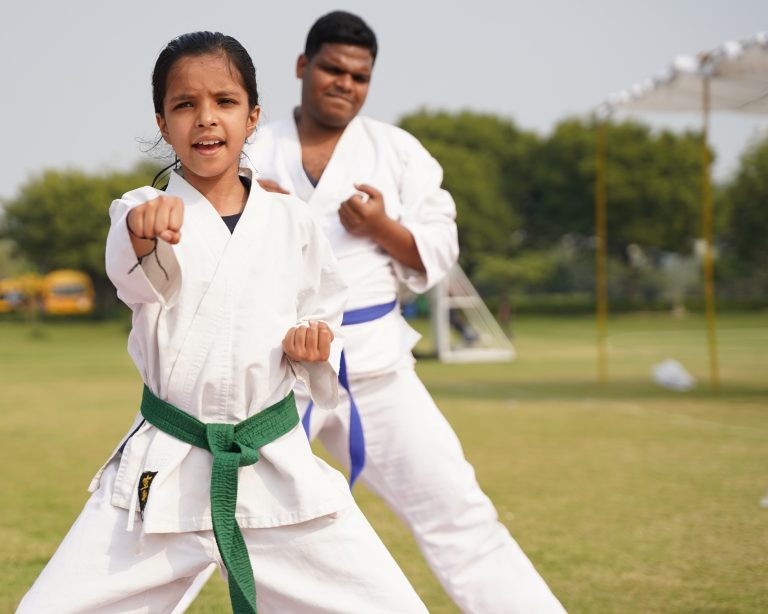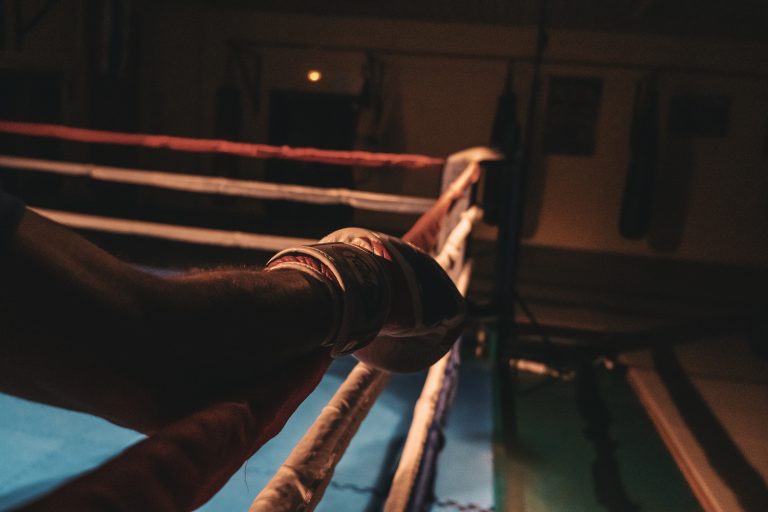The 10 Biggest Advantages of Karate for Health
Karate is a popular Japanese martial art that has been gaining popularity all over the world. Aside from being an excellent form of exercise, karate also provides numerous health benefits. Here are ten of the biggest advantages of practicing karate for your health:
1. Strengthens Muscles and Bones
Karate involves a lot of physical activity, such as punching, kicking, and blocking. These movements help tone your muscles and bones, resulting in better strength and density.
2. Improves Flexibility
Karate involves a lot of stretching, which helps improve flexibility. Proper stretching can help prevent muscle strains and injuries, particularly for people who sit for prolonged periods during the day.
3. Enhances Cardiovascular Health
Karate involves a lot of strenuous movement, which increases your heart rate and improves cardiovascular health. Regular karate practice strengthens your heart and ventilator muscles, which lowers your risk of developing cardiovascular diseases.
4. Boosts Confidence
Karate can boost your confidence levels as well. By mastering new techniques and movements, you feel more confident and self-assured. This confidence can translate into other areas of your life, such as career and relationships.
5. Relieves Stress and Anxiety
Like any martial art, karate requires a lot of focus and concentration. Practicing karate helps relieve stress and anxiety, and provides an excellent outlet for pent-up emotions.
6. Improves Balance
Karate requires both lower and upper body control, which helps improve balance. This balance is particularly valuable for seniors and individuals with mobility issues.
7. Sharpens Mental Focus and Discipline
Karate requires a lot of mental focus and discipline. Practicing karate can improve attention span and mental clarity, and can help in other areas of your life such as concentration at work and academic performance.
8. Provides Self-Defense Skills
Karate trains you in self-defense, which enables you to protect yourself in potentially threatening situations.
9. Simplifies Weight Management
With continuous karate practice, you can burn fat and lose weight naturally. Karate is a full-body workout that aids in weight management, particularly for people who struggle to stick to an exercise regimen.
10. Cultivates Camaraderie and Community
Like any sport, karate provides an excellent opportunity to build relationships and network with other individuals.
In conclusion, karate can provide numerous health benefits for your physical, emotional, and mental well-being. The best part is that regardless of age, fitness level, or skill, anyone can join a karate class and experience these advantages firsthand.
The 10 Biggest Advantages of Karate for Health: Frequently Asked Questions
Karate is a traditional Japanese martial art that has become increasingly popular in many countries around the world. Karate is not only about learning self-defense techniques but also about improving your overall health and well-being. In this blog post, we will answer some of the frequently asked questions about the top 10 advantages of karate for health.
1. What are the physical benefits of practicing karate?
Karate involves rigorous training which can lead to many physical benefits. Some of the most important physical benefits of practicing karate are:
- Improved cardiovascular fitness
- Increased flexibility and coordination
- Enhanced strength and endurance
- Better posture
- Weight loss
- Improved bone density
2. What are the mental benefits of practicing karate?
Apart from physical benefits, karate training can also have significant mental health benefits. Some of the most important mental benefits of practicing karate are:
- Improved focus and concentration
- Stress relief
- Increased self-confidence and self-esteem
- Greater discipline and self-control
- Increased emotional stability
3. Is karate suitable for all ages?
Karate is suitable for people of all ages. The training can be modified to suit the physical abilities of each participant. Karate can be an effective way of promoting physical activity among children and teenagers, and it can be an excellent form of exercise for adults too. In fact, many people continue to practice karate well into old age.
4. Is karate safe?
Karate is generally considered safe when the training is conducted under the guidance of qualified instructors. It is essential to wear protective gear when sparring to reduce the risk of injury. Karate practitioners are also taught to respect their training partners and to control their techniques to avoid causing harm.
5. Do you need any equipment to practice karate?
To start practicing karate, you will need a karate gi (uniform), which can be purchased from many sports stores. You may also need protective equipment, such as gloves, shin guards, and headgear, if you plan to spar. Beginners do not usually need to purchase equipment, as the training will initially focus on basic techniques and exercises.
6. How long does it take to become proficient in karate?
The time it takes to become proficient in karate varies depending on individual factors, such as how often you train, your natural ability, and your level of dedication. Some people may become proficient after a few months of training, while others may take several years or more. The key to becoming proficient in karate is consistent practice and a willingness to learn from mistakes.
7. Is karate a good form of self-defense?
Karate can be an effective form of self-defense when taught correctly. Karate emphasizes efficient techniques that can be used to defend against attackers. However, it is essential to remember that self-defense is not just about learning physical techniques but also about being aware of your surroundings and avoiding potentially dangerous situations.
8. Can practicing karate be harmful?
While karate is generally considered safe when taught correctly, there is always a risk of injury associated with any physical activity. It is essential to follow proper training techniques and to wear protective gear when sparring to reduce the risk of injury. Karate practitioners should also listen to their bodies and rest when necessary to avoid overtraining.
9. Do you need to be physically fit to practice karate?
You do not need to be physically fit to start practicing karate, but regular training can lead to significant improvements in your physical fitness. The training can be modified to suit the physical abilities of each participant, and beginners can start with basic techniques and exercises.
10. How can I find a karate class near me?
To find a karate class near you, you can search online for local karate schools or martial arts centers. You can also ask for recommendations from friends or family members who practice karate. It is essential to choose a reputable instructor and to visit the class before signing up to make sure it is a good fit for you.
In conclusion, karate can have many significant benefits for your overall health and well-being. Whether you are looking for a form of exercise, stress relief, or self-defense training, karate can be an excellent option. However, it is essential to start with the proper training techniques and to follow proper safety protocols to minimize the risk of injury.
Inhaltsverzeichnis






